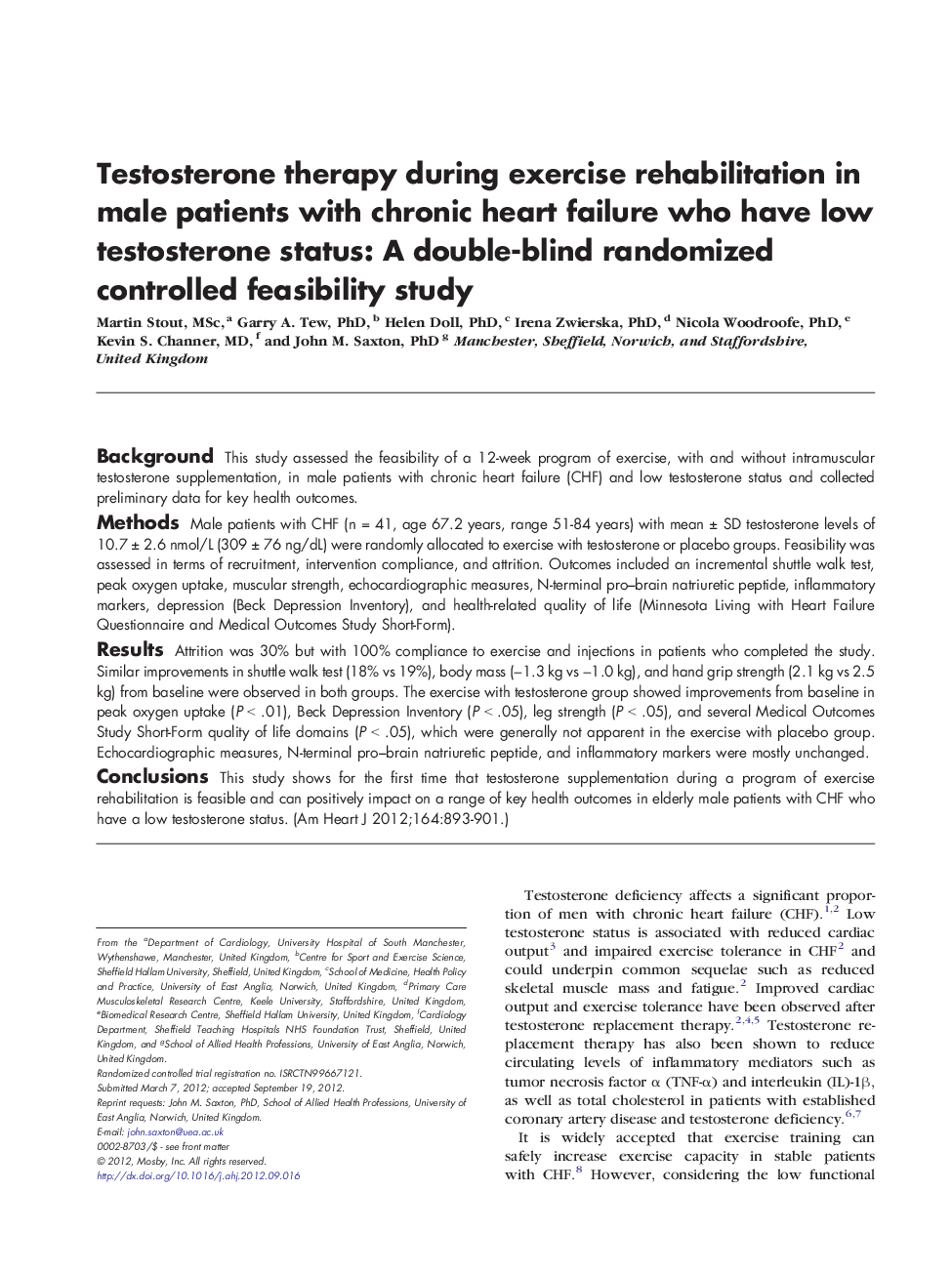| کد مقاله | کد نشریه | سال انتشار | مقاله انگلیسی | نسخه تمام متن |
|---|---|---|---|---|
| 2848854 | 1167662 | 2012 | 9 صفحه PDF | دانلود رایگان |

BackgroundThis study assessed the feasibility of a 12-week program of exercise, with and without intramuscular testosterone supplementation, in male patients with chronic heart failure (CHF) and low testosterone status and collected preliminary data for key health outcomes.MethodsMale patients with CHF (n = 41, age 67.2 years, range 51-84 years) with mean ± SD testosterone levels of 10.7 ± 2.6 nmol/L (309 ± 76 ng/dL) were randomly allocated to exercise with testosterone or placebo groups. Feasibility was assessed in terms of recruitment, intervention compliance, and attrition. Outcomes included an incremental shuttle walk test, peak oxygen uptake, muscular strength, echocardiographic measures, N-terminal pro–brain natriuretic peptide, inflammatory markers, depression (Beck Depression Inventory), and health-related quality of life (Minnesota Living with Heart Failure Questionnaire and Medical Outcomes Study Short-Form).ResultsAttrition was 30% but with 100% compliance to exercise and injections in patients who completed the study. Similar improvements in shuttle walk test (18% vs 19%), body mass (−1.3 kg vs −1.0 kg), and hand grip strength (2.1 kg vs 2.5 kg) from baseline were observed in both groups. The exercise with testosterone group showed improvements from baseline in peak oxygen uptake (P < .01), Beck Depression Inventory (P < .05), leg strength (P < .05), and several Medical Outcomes Study Short-Form quality of life domains (P < .05), which were generally not apparent in the exercise with placebo group. Echocardiographic measures, N-terminal pro–brain natriuretic peptide, and inflammatory markers were mostly unchanged.ConclusionsThis study shows for the first time that testosterone supplementation during a program of exercise rehabilitation is feasible and can positively impact on a range of key health outcomes in elderly male patients with CHF who have a low testosterone status.
Journal: American Heart Journal - Volume 164, Issue 6, December 2012, Pages 893–901